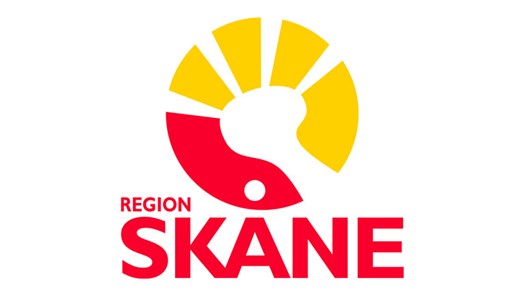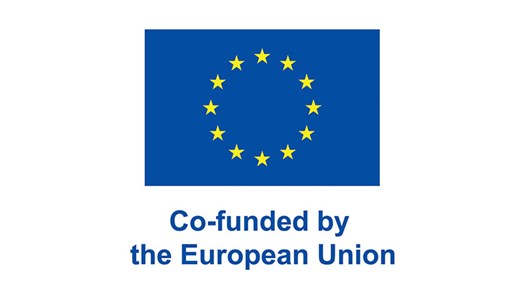
-
- Research
- Research
- PhD Studies
- Focus: Climate and environment
- Adaptation of urban space through sustainable regeneration
- AI Politics Hub
- MILSA – research and training materials
- Organisation studies
-
- Collaboration and Innovation
- Collaboration and Innovation
- Collaboration and external relations
- Innovation
- Support Malmö University(2)
MILSA – research and training materials
research and training materials
The support platform for migration and health, MILSA, has developed knowledge and supported method development to promote the inclusion and establishment of newly arrived migrants in Swedish society. Here are reports, articles and other material.
The background
The research, which was aimed at both the establishment system and the needs of new arrivals, was carried out in collaboration between different higher education institutions and organisations. The work within MILSA focused on a broad definition of health, including participation, empowerment, housing issues, confidence, financial stress, mental health, dental health, sleep and depression. Mapping of new arrivals' health and studies of intervention effects in Partnership Skåne were key elements in the development of knowledge.
Outcomes
The results were shared through reports, scientific articles and conference contributions as well as in direct dialogue with relevant stakeholders to support operational development. MILSA, based in Partnership Skåne, expanded its national presence and conducted research projects and training programmes. Coordination was handled jointly by Skåne County Administrative Board and Malmö University.
Research project results
The health situation and health-related determinants among refugees in Skåne.
Three survey studies were conducted within the framework of MILSA 2.0 with funding from AMIF: Participation in physical activity among newly arrived refugees in Sweden.
A study based on data from the survey conducted in the MILSA 1.0 project, focusing on participation in physical activity among respondents.
Experiences of the establishment process of newly arrived refugee families
The study explored the experiences of newly arrived families during the establishment process in Sweden. The overall themes that emerged in the study included both challenges and positive aspects of the process. In interviews, the participants described the main challenges as finding stable housing and employment, which in turn affected the parents' ability to create stable conditions for their children's establishment and schooling. Health and health-related factors among newly arrived young people
The study examined the health situation of newly arrived adolescents to increase knowledge about the importance of various social determinants for the health situation of newly arrived adolescents.
Education and training
Information about the society you live in and the knowledge to take care of your health is both a human right and important for a successful integration process. Across the country, community and health communicators worked to do just that.
National training programme for social and health communication.
MILSA training platform was a national initiative for community and health communicators with a focus on training, exchange of experience and networking. The project was supported by the European Social Fund 2017-2021 and the Ministry of Social Affairs.
Universities, county administrative boards, regions, municipalities, experts in various subject areas and various non-profit organisations at both national and international level collaborated in the project.
Teachers from several universities in different parts of the country, together with experts, were responsible for key areas of the programme.
Important areas of the programme
The training has been carried out remotely but also includes various practical elements and face-to-face training sessions.
Over the course of the project, nearly 200 communicators working in community orientation and health communication in different languages across the country have participated.
The project has also supported networking, co-operation and exchange of experience between communicators and between actors working on these issues.
In addition to developing and implementing a basic training programme for communicators, MILSA has produced a social science textbook and a handbook for social and health communicators.
The textbook Samhällsorientering för en hållbar integration by Erik Amnå and Mikael Stigendal focuses on the themes of social orientation, but based on the communicators' need for understanding knowledge.
The MILSA handbook for community and health communicators is unique as there has previously been no support material that speaks directly to the profession of community and health communicator. Examples of issues raised in the handbook are how communicators create a safe environment, ensure that participants have received the knowledge conveyed, how to approach and discuss difficult topics in the classroom and delimitations in relation to the role of communicator.
Publications
-
2022 | Article in journal
Risk for mental illness following exposure to violence and threats among newly arrived refugees
Elisabeth Mangrio, Slobodan Zdravkovic, Anna-Karin Ivert
-
2022 | Article in journal
Social relations and mental ill-health among newly arrived refugees in Sweden: a cross-sectional study
Elisabeth Mangrio, Mathias Grahn, Slobodan Zdravkovic, Carin Cuadra
-
2021 | Article in journal
Risk for mental illness and family composition after migration to Sweden
Elisabeth Mangrio, Karin Sjöström, Mathias Grahn, Slobodan Zdravkovic
-
2021 | Article in journal
Physical Activity in Relation to Wellbeing Among Newly Arrived Refugees in Sweden: A Quantitative Study
Katarina Sjögren Forss, Elisabeth Mangrio, Matti Leijon, Mathias Grahn, Slobodan Zdravkovic
-
2020 | Article in journal
Professional development of civic and health communicators: a national platform in Sweden MILSA 3.0
Slobodan Zdravkovic, K. Carlzen, A. Agardh, P. Svensson, R. Westerling
-
2020 | Article in journal
Newly arrived refugee parents in sweden and their experience of the resettlement process: A qualitative study
Elisabeth Mangrio, Elisabeth Carlson, Slobodan Zdravkovic
-
2019 | Article in journal
Refugee women's experience of the resettlement process: a qualitative study.
Elisabeth Mangrio, Slobodan Zdravkovic, Elisabeth Carlson
-
2018 | Article in journal
A support platform for migration and health (MILSA 2.0), Sweden
Slobodan Zdravkovic, Elisabeth Mangrio, Peter Håkansson, Ragnar Westerling
-
2018 | Article in journal
Understanding experiences of the Swedish health care system from the perspective of newly arrived refugees
Elisabeth Mangrio, Elisabeth Carlson, Slobodan Zdravkovic
-
2018 | Article in journal
A qualitative study of refugee families’ experiences of the escape and travel from Syria to Sweden
Elisabeth Mangrio, Zdravkovic Slobodan, Elisabeth Carlson
-
2018 | Article in journal
Crowded living and its association with mental ill-health among recently-arrived migrants in Sweden: a quantitative study
Elisabeth Mangrio, Slobodan Zdravkovic
-
2021 | Report
Utvärdering av MILSA-utbildningen. En delutvärdering av MILSA utbildningsplattform för samhälls- och hälsokommunikation.
Svensson Pia, Josefin Wångdahl, Slobodan Zdravkovic
-
2020 | Report
MILSA 2.3: Hälsa och hälsorelaterade faktorer bland nyanlända barn och ungdomar
Peter Gladoic Håkansson
-
2020 | Report
Kartläggning av hälsa, levnadsvanor, sociala relationer, arbetsmarknad och boendemiljö bland arabisktalande nyanlända inom etableringen: Delrapport från MILSA 2.0
Slobodan Zdravkovic, Katarina Carlzén, Mathias Grahn, Elisabeth Mangrio
-
2020 | Report
Kartläggning av nyligen nyanländas hälsa, levnadsvanor, sociala relationer, arbetsmarknad och boendemiljö efter etableringen.: Delrapport från MILSA 2.0
Elisabeth Mangrio, Katarina Carlzén, Mathias Grahn, Slobodan Zdravkovic
-
2020 | Report
Nyanlända flyktingars upplevelse av hälsa under etableringen i Sverige: Delrapport från MILSA 2.0
Elisabeth Mangrio, Elisabeth Carlson, Slobodan Zdravkovic
-
2019 | Report
Riskbeteende och framtidstro bland nyanlända barn och ungdomar i Skåne
Peter Gladoic Håkansson
-
2019 | Report
Socialt kapital bland nyanlända barn och ungdomar i Skåne
Peter Gladoic Håkansson
-
2019 | Report
Kvantitativa studier bland nyanlända ungdomar och ensamkommande: Tillvägagångssätt och utmaningar
Peter Gladoic Håkansson, Slobodan Zdravkovic
-
2015 | Report
Nyanländas möjligheter till fysisk aktivitet
Anna Fabri
Film
MILSA explained by the WHO
https://youtube.com/embed/q3Lhs8gZERU?si=w_76bn0oyGBhfYFK?enablejsapi=1&rel=0&showinfo=1&controls=1
Samarbetspartners
Region Skåne
 Region Skåne
Region Skåne
European Social Fund
 European Social Fund
European Social Fund
EU - Asylum, Migration and Integration Fund
 EU - Asylum, Migration and Integration Fund
EU - Asylum, Migration and Integration Fund